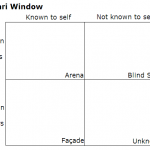Why is Memorizing Important For Children?

© Susan Todd-Raque
Throughout my years in working with children about their learning capabilities, one piece of advice I have said to the parents has been to emphasize the importance of memorization. Much of what I am about to state comes from the psycho-educational evaluations I have given during my 38 years of clinical practice.
Many of you would be surprised to know how many of our children do not know their multiplication tables by the fourth grade. Even more worrisome is how many children by the seventh grade do not know who the President of the US was during the Civil War, much less know the years the Civil War took place. The children I am talking about have average IQ’s and there is only one explanation. They are not being made to memorize important general information. In my opinion, the philosophy of our educational system in America has become more about codling our children and protecting them from the stressors of a rigorous education. I do not think this is solved by more hours in the classroom and cutting summers shorter, but by the realization that disciplining the mind and raising expectations during the time our children are in the classroom is a more productive solution. When I talk to young people and they tell me how much time they spend sitting playing video games, watching You Tube, texting their friends for hours at a time, and we wonder why are children have weight issues.
Learning is a complex process and there are many different ways of learning and types of learning. Reading to learn or to understand a concept is essential. But unless one has a photographic memory, most of us have to look at building knowledge through building blocks or steps. Memorizing basic information, regardless of the subject, provides a basic ground level start. It sows the seeds for future growth.
To this day I am grateful to my parochial school education and the role that memorization played in my learning. Sure, I used to complain to my mother when I would have to memorize Catechism lessons, and particularly when I was an acolyte and had to memorize the Confiteor in Latin, as well as, pretty much the entire liturgy of the Catholic religion. And all of this was alongside of the usual memorization required by my schoolwork in mathematics, civics, and history.
As parents, tell me what your children are required to memorize? Starting in the first grade do they bring home information their teachers have told them they must memorize? How many children by the second grade have their parents helped them memorize their address, telephone number, even their birth date including what year they were born?
This summer make a difference in your child’s life by working with them to learn to memorize those facts necessary at their school age. Play Station II, YouTube, and other online games should have a secondary role. Go to the library and find books that are age appropriate and interesting such as biographies of historical figures, American poetry, history or art books. Have your child tell you about the book when they finish it. Buy flash cards and help your child memorize mathematics, the spelling of words, historical facts.
Memorization is about training the brain. It is also about discipline. And it is an ability that will pay back in uncountable ways, now and in the future.






